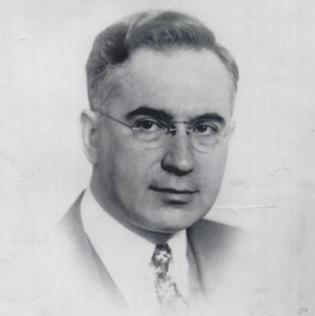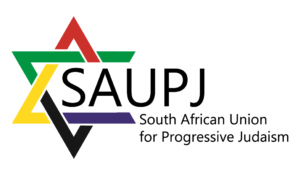Related Research Articles

Reform Judaism, also known as Liberal Judaism or Progressive Judaism, is a major Jewish denomination that emphasizes the evolving nature of Judaism, the superiority of its ethical aspects to its ceremonial ones, and belief in a continuous revelation which is closely intertwined with human reason and not limited to the Theophany at Mount Sinai. A highly liberal strand of Judaism, it is characterized by little stress on ritual and personal observance, regarding Jewish law as non-binding and the individual Jew as autonomous, and by a great openness to external influences and progressive values.
The Union for Reform Judaism (URJ), formerly known as the Union of American Hebrew Congregations (UAHC) until 2003, founded in 1873 by Rabbi Isaac Mayer Wise, is the congregational arm of Reform Judaism in North America. The other two arms established by Rabbi Wise are the Hebrew Union College-Jewish Institute of Religion and the Central Conference of American Rabbis. The current president of the URJ is Rabbi Rick Jacobs.
Eric H. Yoffie is a Reform rabbi, and President Emeritus of the Union for Reform Judaism (URJ). He was the head of the URJ denomination from 1996 to 2012. Following his retirement in 2012, he has been a lecturer and writer; his writings appear regularly in The Huffington Post, The Jerusalem Post, and Haaretz.
The Pittsburgh Platform is a pivotal 1885 document in the history of the American Reform Movement in Judaism that called for Jews to adopt a modern approach to the practice of their faith. While it was never formally adopted by the Union of American Hebrew Congregations (UAHC) or the Central Conference of American Rabbis founded four years after its release, and several rabbis who remained associated with Reform in its wake attempted to distance themselves from it, the platform exerted great influence over the movement in the next fifty years, and still influences some Reform Jews who hold classicist views to this day.

Gustav Gottheil was a Prussian-born American rabbi. Gottheil eventually became one of the most influential, well-known and controversial Reform Jewish leaders of his time. He was the father of Richard Gottheil.
Reform Judaism Outreach refers to the organizational and educational efforts by the Union for Reform Judaism and the Reform Movement as a whole to draw into Jewish life the non-Jewish spouses of interfaith families and seekers who are looking for a new religious home in Judaism.

Levi Arthur Olan was an American Reform Jewish rabbi, liberal social activist, author, and professor. Born in Ukraine in 1903, he grew up in Rochester, New York and was ordained at Hebrew Union College in 1929. He served as rabbi of Temple Emanuel in Worcester, Massachusetts from 1929 to 1948, and Temple Emanu-El in Dallas, Texas from 1948 to his retirement in 1970. Olan was one of the most prominent liberal voices in Dallas, which was a predominantly conservative city. His views on poverty, war, civil rights, civil liberties and other topics were disseminated largely through his popular program on WFAA radio, and earned him the moniker, “the conscience of Dallas.” He also had a longstanding visiting professorship at Southern Methodist University and published numerous works on Judaism, process theology, and contemporary social issues.

Temple Emanuel Sinai is a Reform Jewish congregation and synagogue located at 661 Salisbury Street, Worcester, Massachusetts, in the United States.
The first openly lesbian, gay, bisexual, and transgender clergy in Judaism were ordained as rabbis and/or cantors in the second half of the 20th century.

Temple Israel is a Reform Jewish congregation and synagogue, located at 130 Riverside Drive in Dayton, Ohio, in the United States.
Stephen Wise Temple is a large Reform Jewish congregation in the Bel Air neighborhood of Los Angeles, California, in the United States. Founded in 1964 by the late Rabbi Isaiah Zeldin, with 35 families, the congregation grew rapidly. At various times in its history it has been stated to be the largest, or one of the largest, Jewish congregations in the world, at one time having a membership of approximately 3,000 families, six rabbis, two cantors and two cantorial interns, and four schools on three campuses. As of 1994, it was the second-largest synagogue in the United States. The congregation was founded as the Stephen S. Wise Temple, in honour of Stephen Samuel Wise; and 2014 it was renamed as the Stephen Wise Temple.

Reform Congregation Keneseth Israel, abbreviated as KI, is a Reform Jewish congregation and synagogue located at 8339 Old York Road, Elkins Park, just outside the city of Philadelphia, Pennsylvania, in the United States. Founded in Philadelphia in 1847, it is the sixth oldest Reform congregation in the United States, and, by 1900, it was one of the largest Reform congregations in the United States. The synagogue was at a number of locations in the city before building a large structure on North Broad Street in 1891, until 1956 when it moved north of the city to suburban Elkins Park.

Samuel Solomon Cohon was an American rabbi and Chair of Theology at Hebrew Union College, a leader of American Reform Judaism in the mid-20th century.
Maurice Nathan Eisendrath was a leader of American Reform Judaism, the head of the Union of American Hebrew Congregations from 1943 until his death, an author, and an activist, particularly active in the U.S. Anti-war Movement of the 1960s. The Maurice N. Eisendrath Bearer of Light Award, one of the highest honors bestowed by the American Reform Movement, is named in his honor.

Isaiah Zeldin was an American rabbi. He was the founder of the Stephen Wise Temple, a Reform synagogue in Bel Air, Los Angeles, California.

The South African Union for Progressive Judaism (SAUPJ) is an affiliate of the World Union for Progressive Judaism and supports 11 progressive congregations. Rabbi Moses Cyrus Weiler, a founder of Reform Judaism in the country, led the country's first Reform synagogue, Temple Israel in Hillbrow, Johannesburg. Weiler is credited with growing the movement, to represent 15-17% of South African Jewry and establishing 25 congregations in the country. A 2020 joint study by the Institute for Jewish Policy Research and the University of Cape Town showed that 12% of Jews identified as Progressive and that in relative terms the progressive strands are increasing after falling to 7% in 1998 and 2005 studies. In Johannesburg, the community accounts for 7% of the city's Jewry, rising to 18% in Cape Town and 25% in Durban.

Bernhard Felsenthal was a German-born American rabbi.
Felix Alexander Levy was an American rabbi who mostly ministered in Chicago, Illinois.
Abraham Jehiel Feldman was a Ukrainian-born American rabbi.
Barnett Robert Brickner was an American rabbi who ministered in Cleveland, Ohio for over thirty years.
References
- 1 2 3 4 5 6 7 Jacques Steinberg, Rabbi Alexander Schindler, Reform Leader and Major Jewish Voice, Dies at 75, New York Times (November 16, 2000).
- 1 2 3 4 Albert Vorspan, Schindler's Legacy Archived 2020-01-26 at the Wayback Machine , Reform Judaism Magazine (1996).
- 1 2 3 4 5 6 7 8 9 10 11 Alexander Schindler, Encyclopedia of World Biography (Gale Group Inc. 2004).
- ↑ Feingold, Norma and Sadick, Nancy. Temple Emanuel 1921-1996 75th Anniversary. Published by Temple Emanuel, 280 May Street, Worcester, Mass. 1996.
- 1 2 History: Rabbi Alexander M. Schindler, Union for Reform Judaism.